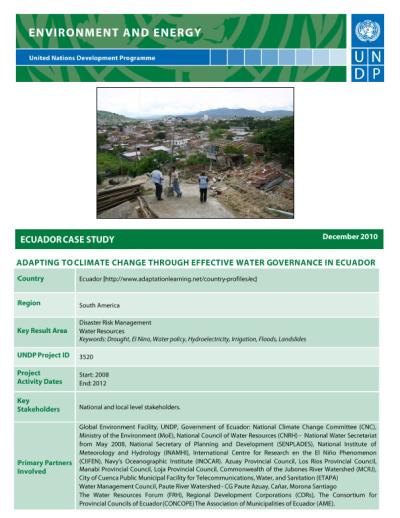
Abstract: Ecuador is well known for its beautiful and rugged topography and has an extreme diversity of climates that range from high altitude glaciers to tropical rain forests in the Amazon and dry tropical forest on the Pacific Coast. Some of these areas show a greater sensitivity to climate change, or will undergo rapid changes as a result of climate change. Water is a defining factor in this process. In Ecuador melting glaciers and irregular rainfall have already begun affecting available power, agricultural production and drinking-water supplies. Addressing these problems, the Adapting to Climate Change through Effective Water Governance in Ecuador project aims to increase the adaptive capacities of water resource management in the agriculture and the energy sector through sound water governance arrangements, information management and flexible financial mechanisms to promote local innovation towards sustainable water management. The project's overall goal is to reduce Ecuador's vulnerability to climate change and increase resilience through improved access to timely and accurate climate data. Key lessons learned from the project implementation thus far indicate that appropriately aligning outcomes and outputs is imperative, while also allowing flexibility for modifications as the project evolves. Another key lesson indicates that merging disaster risk management and adaptation plans can support integration of climate change concerns into key provincial and local development plans and the creation of a Management Support Group can be used strategically to form vital partnerships.
